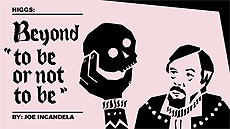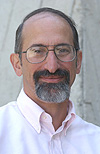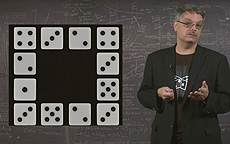|
Have a safe day!
Monday, July 9
PARTICLE ASTROPHYSICS SEMINARS WILL RESUME IN THE FALL
3 p.m.
DIRECTOR'S COFFEE BREAK (NOTE TIME) - 2nd Flr X-Over
3:30 p.m.
Special Joint Experimental-Theoretical Physics Seminar (NOTE DATE, TIME, LOCATION) - Ramsey Auditorium
Speaker: Andrei Gritsan, Johns Hopkins University
Title: Latest results in the search for the Higgs boson at CMS
and
Speaker: Jianming Qian, University of Michigan
Title: Latest results in the search for the Higgs boson at ATLAS
THERE WILL BE NO ALL EXPERIMENTERS' MEETING THIS WEEK
Tuesday, July 10
Noon
Undergraduate Lecture Series - One West
Speaker: Thomas Kroc, Fermilab, and Mark Pankuch, Central DuPage Hospital
Title: The Clinical Use of Particle Beams: Neutron and Proton Radiotherapy
3:30 p.m.
DIRECTOR'S COFFEE BREAK - 2nd Flr X-Over
4 p.m.
Special Fermilab Colloquium (NOTE DATE) - One West
Speaker: Dan Green, Fermilab
Title: Fermilab: Life on the Energy Frontier
THERE WILL BE NO ACCELERATOR PHYSICS AND TECHNOLOGY
SEMINAR TODAY
Click here for NALCAL,
a weekly calendar with links to additional information.
Upcoming conferences |
| Monday, July 9
- Breakfast: Croissant sandwich
- French Quarter gumbo soup
- Sweet & sour chicken w/ egg roll
- Santa Fe pork stew
- Smart cuisine: country baked chicken
- French dip w/ horseradish cream sauce
- Popcorn shrimp wrap
- Assorted sliced pizza
Wilson Hall Cafe Menu
|
|
Wednesday, July 11
Lunch
- Salmon w/ cucumber cream sauce
- Rice pilaf
- Lemon-coconut cake
Friday, July 13
Dinner
- Insalata caprese on a skewer
- Stuffed flank steak
- Balsamic roasted potatoes
- Chocolate-amaretto soufflé
Chez Leon Menu
Call x3524 to make your reservation.
|
|
Beyond "to be or not to be"
 |
Physicists on experiments at the Large Hadron Collider have observed a new particle that may be the Higgs boson. What now? |
Editor's note: In a commentary published in symmetry just before CERN's announcement on the Higgs search, Joe Incandela, spokesperson for the CMS experiment and professor at the University of California, Santa Barbara, answers the question: What happens next?
News outlets around the world have been following the search for the Higgs boson. If you've been paying attention, you'll know that physicists on experiments at the Large Hadron Collider plan to give their next update this week.
Much of the coverage has focused on what CERN Director-General Rolf Heuer has called "the Hamlet question"—whether or not the Higgs exists.
The question that's not often posed is this: What happens next?
Theorists came up with the electroweak symmetry breaking mechanism, which predicts the existence of the Higgs boson, in 1964 as a way to explain how some subatomic particles acquire mass. If we can rule out the existence of the Higgs boson, or at least the kind of Higgs boson we're expecting, that will be a discovery. We'll enter a new era of particle physics with new questions to answer about how nature works.
But finding the Higgs boson, or at least something that looks like the Higgs boson, would be its own new beginning as well.
To understand this, it helps to consider the hunt for something else that people weren't sure existed: King Tutankhamen's tomb.
Archaeologist Howard Carter and his sponsor, George Herbert, spent five years searching through the Valley of the Kings for the ancient pharaoh's final resting place. It turned out that it did exist, and it was one of the best-preserved Egyptian tombs ever discovered.
Read more
—Joe Incandela
|
Peter Cooper retires Friday
 |
|
Peter Cooper
|
Peter Cooper has worked as an experimental particle physicist at Fermilab for 36 years. He retires this Friday.
Cooper began working at Fermilab in 1976 as a user based at the University of Pennsylvania and then Yale University. He became an employee 12 years later, and since that time has worked on numerous experiments. He serves as spokesperson for the E-715, E-761, SELEX, CKM and CIRTE experiments.
He also served in leadership roles as Assistant Department Head and then Department Head of the former Computing Department and assistant division head of the former Computing Division.
Though Cooper is retiring, he is not leaving. He'll continue actively researching particle physics as Fermilab Scientist Emeritus.
|
New Fermilab COO Jack Anderson starts today
Today is new Chief Operating Officer Jack Anderson's first day at Fermilab. Read about him in this earlier Fermilab Today article.
|
Performance review processes to be completed in July
Attention Fermilab employees:
It is the time of year again to reflect on our past year's performance. The following portions of the performance review process must be completed in July 2012:
Please note the review form has been slightly updated to formalize feedback from matrix-level managers. If you have any questions about the performance review process, please contact Juanita Frazier, Workforce Relations Manager, or your division/section head HR generalist.
|
Fermilab's Tevatron laid groundwork in search for 'God particle'
From The Beacon-News, July 7, 2012
Nearly 14 billion years ago, our hot, dense universe would have fit many thousands of times on the head of a pin.
Then it exploded, with a bit of a bang, bringing along with it time, space and matter. The universe expanded, as it continues to do today, and it cooled enough for particles to form and to begin playing with one another.
Last week, physicists came a little bit closer to understanding how, a question that has eluded the science world for the past four and a half decades, ever since physicist Peter Higgs hypothesized a new particle that helped glue everything together.
"It's responsible for the giving other particles mass," said theorist Joe Lykken, "The Higgs energy field is like a sticky molasses that slows other particles from moving at the speed of light."
The Higgs boson is the particle that helps transmit mass from the Higgs field to other particles. Without it, the entire universe would behave as photons do, whirring through space too fast to interact, too fast to build atoms, molecules, or planets.
"No clumping, no atoms, no molecules," said Fermilab physicist Rob Roser. "Life itself would not exist."
Read more
|
|
Come to the dark side, we have cookies
 |
Cookies can be a temptation. Hackers may be leaving cookies on your browser. Photo: Nina Matthews Photography |
While Hollywood and the media depict computer hacking with special effects and magical tools, success is often gained with nothing more than a web browser, the 'telnet' command and some analytical thinking.
Every day, the Fermilab Computer Security Team is constantly scanning your computer for various vulnerabilities. Normally these scans are quite unobtrusive, looking only for serious vulnerabilities or misconfigurations. Occasionally, however, members of CST transfer over to the "dark side" and play the role of a hacker. During this role reversal, CST launches aggressive scans against Fermilab computers, looking for holes and deficiencies to exploit or to retrieve information that should not be available, or to obtain access to run arbitrary programs on the target computer. The team will not actually hack into any lab computers, but it will discover computing systems that could be breached by an outsider attacker.
This year, for the first time, CST invited DOE Safeguards and Security personnel to assist in these activities as part of our Contractor Assurance program, which assures DOE that the laboratory cyber security program is operating as stated and with transparency. They were pleased both with our process for performing these scans and with the results of the exercise, thereby avoiding the necessity for them to perform scans on their own.
During the May-June exercise, CST assessed around 10,000 computers. Most of these computers were secure. But the team did find a few deficiencies that led to the equivalent of a hacker compromise on some legacy systems that were not yet migrated to current technologies. Additionally,they easily accessed a few computers without password-protected screen savers in unlocked offices. But overall we (and DOE) were pleased at the small number of hackable systems we discovered. We notified administrators of systems with deficiencies and they corrected their vulnerabilities.
How can you prevent yourself from being a target? Keep up to date on patches. Turn off unneeded services or restrict access to only the local machine. You can scan your own computer from the 'Scan me Now' link at the top of the Fermilab Computer Security home page. Lastly, make sure you activate a password-protected screen saver and be sure to lock up not only your computer, but also your office, when you leave for the evening.
|
What does 5 sigma mean?
 |
Fermilab physicist Don Lincoln relates sigma levels to dice rolls in his new video. Video: Fermilab |
Much of the anticipation over last week's Higgs announcement dealt with what sigma level the CMS and ATLAS experimental results would have. But what exactly is a sigma? Fermilab physicist Don Lincoln, who works on CMS, explains with a few rolls of the dice in this new video.
In related news, Fermilab's YouTube page has drawn over 1 million views. Special thanks to Fermilab Visual Media Services and our resident filmmaker, Jim Shultz, for all their hard work.
|
|